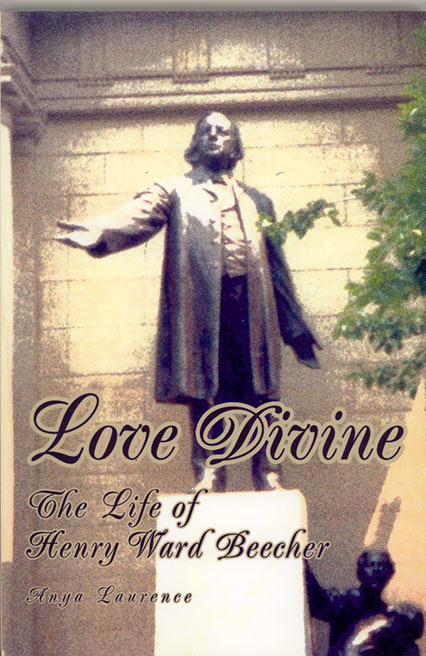
Home Structural Products & Services, Stairlifts
Structural Products & Services, Stairlifts
Furniture, Clocks,
Accessories
Antiques, Folk Art,
Fine Art, Auction Houses
 |
BEHIND A VICTORIAN STUDY DOOR By Max H. Peters |
It’s unfortunate that one of Connecticut’s greatest sons, Henry Ward Beecher, is remembered more for a sex scandal than for his tremendous moral eloquence, which inspired millions during the Civil War era. The fortunate thing is that he is remembered, and that anybody who takes the time to look into his life will find, besides his weaknesses, tremendous qualities of mind and heart, expressed in sermons and essays which are on par with the best of Emerson, Bronson Alcott, and Thoreau. “Reason can tell us how love affects us,” Beecher wrote, “but cannot tell what love is.” Henry Ward Beecher is all about love’s labor, lost and found. What I like most about Anya Laurence’s short book Love Divine:The Life of Henry Ward Beecher(iUniverse, 145 pages, paperback) is how the author, who is both a concert pianist and a writer of note, sticks close to the theme of Beecher’s personal search for the meaning of love. Beecher was no saint, but he was far from being a libertine. Laurence writes what can be described as a concerto in prose in which every variation leads right back to the main theme of the search for ultimate meaning of love. The result is that when you have finished the book it is not the historical facts you remember so much as the intense range of feelings. Love Divine opens with all four verses of the well-known hymn “Love Divine.” I read down to the last line: “Lost in wonder, love, and praise.” Lost? As in losing your bearings, losing track of your inhibitions, and losing track of your sense of limits? After the credit to Charles Wesley, it read “Tune ‘Beecher’ by John Zundel.” I put down the book and looked this up on the computer. John Zundel was the long-time organist and choirmaster at Plymouth Church, where Beecher was pastor. Zundel composed the melody, now universal, in tribute to Beecher. (As it turned out, this was explained later in the book.) I’d learned all this, and I hadn’t gotten to page one yet! |
|
|
|
||
The Prologue takes us to the gist of Beecher’s notoriety—his trial for adultery. Did he or didn’t he have sex with that woman, Elizabeth Tilton, his best friend’s wife? The lady herself confessed, and then retracted. The court couldn’t decide, the newspapers couldn’t either, and to this day no one can state for certain exactly what happened behind that closed Victorian study door. Using the scandal as a ramp to the story of Beecher’s life, Laurence moves our attention from the gutter up to what the collective American consciousness should see when they remember Henry Ward Beecher: the preacher in his pulpit with Sarah, a slave girl, entreating his cheering congregation to come up with enough money to buy Sarah her freedom. And they did.To move the reader’s attention from the scandal to Beecher’s greater self is along the lines of what Sartre meant when he talked about “the strip-tease of humanism.” With her lyrical gift and deft use of original material, Laurence makes it all into a sad, sweet song.
Love Divine was originally published in paperback in 2005. The following year Doubleday came out with The Most Famous Man in America: the Biography of Henry Ward Beecher by Debbie Applegate. Weighing in at 527 pages, Applegate’s book was lauded by Helen Cox Richardson in the Chicago Tribune as “…a beautifully written history of nineteenth century America” and went on to win many other plaudits and eventually the Pulitzer Prize.
Comparing Applegate’s book to Laurence’s is like comparing a tractor-trailer truck to a Jaguar XJ220. Applegate has packed in everything relevant to Beecher that she could find and expounds on the connections cogently and sometimes brilliantly. Laurence’s book moves faster and stays more concerned with Beecher himself and his family. One example of many I could offer why I like Laurence’s book better is the fact that Laurence writes about Henry Ward’s grandfather, David Beecher. David Beecher was a blacksmith in New Haven who rented out rooms to Yale students so he could borrow their textbooks, which he read at night by candlelight. Emerson, Melville, and Walt Whitman appear in Applegate’s book, but David Beecher doesn’t.





